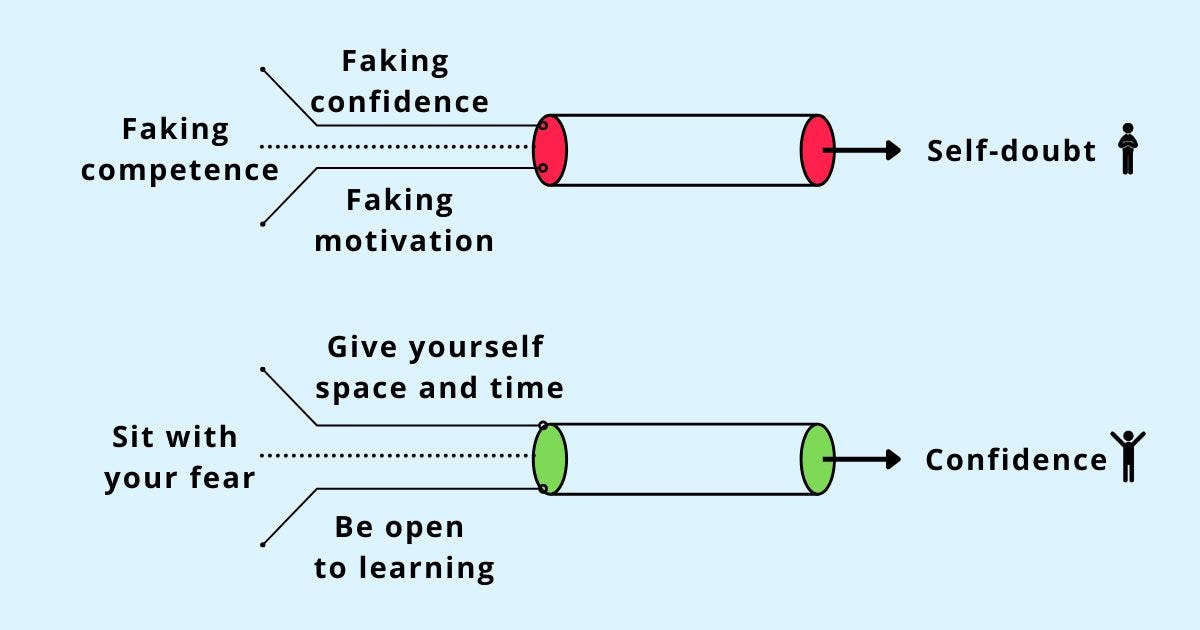232 reads
Is Faking It Till You Make It Useful Advice?
by
February 16th, 2023
Audio Presented by

Author Upgrade Your Mindset, Rethink Imposter Syndrome. Scaling products → Scaling thinking. Former AVP Engg @Swiggy
About Author
Author Upgrade Your Mindset, Rethink Imposter Syndrome. Scaling products → Scaling thinking. Former AVP Engg @Swiggy
